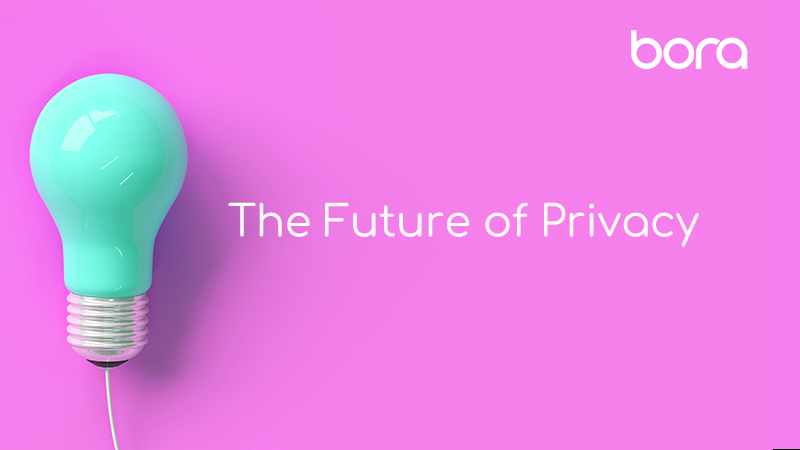The future of privacy is the focus of the 2nd part of this series; Insights from the 5th Data PrivacyData privacy is the process of safeguarding an individual’s personal information, ensuring it remains confidential, secure, and protected from unauthorized access or misuse. More and Protection Conference. In this blog, I prioritise three presentations that provide a glimpse into the topics of future privacy, with a focus on travel.
In my previous post of this series, I discussed challenges to privacy presented by the COVID-19 pandemic. This year’s conference took place in a virtual platform on 17 – 18 June 2020.
Fixed and Variable Factors In Data Privacy During The Pandemic
Vakul Sharma of Vakul Corporate Advisory perspective on data privacy is very different to the norm. He elaborates that during a pandemic, data privacy equates down to two factors – fixed and variable. Fixed factors are stakeholders such as the state, hospitals and doctors, transportation services, media outlets, and employers. On the other hand, variable factors are the patients, their family members, and asymptomatic persons.
Fixed factors are greater in number than the variable ones. Considering this statement, Sharma said that:
Irrespective of national laws and constitutional rights in terms of privacy, during a pandemic involving a large number of stakeholders – who have absolute control over the nation’s economy, one cannot seek personal privacy in absolute terms.
Personal Privacy Sacrificed For The Welfare Of The Community – Global Health App.
Personal privacy during a pandemic becomes relative. Private medical details including ‘contact’ details are to be verified and authenticated in terms of the welfare of the ‘community-at-large’.
Consequently, personal privacy is sacrificed for the good of the community. Mr Sharma concluded his presentation saying that there is a need for a global health app. This app would act as a ‘passport’ to enable international movement and travel.
Privacy In The Hospitality Sector – The Development Of A COVID-19 Passport
On the same topic of international travel, Attorney-at-law Nicolas Kanellopoulos had something to say. He stated that a fair balance must be struck between reopening the economy and the ‘reset’ of tourism, with health protocols and privacy protection measures.
The hospitality sector was urged to adopt protocols and procedures that ensure the protection of customers and employees. The precautionary measures should not lead to stigma, disproportionate control or restriction of individuals. At the same time, information confidentiality and data privacy should be adhered to for all confirmed or suspicious cases.
In the context of strengthening a sense of safety when travelling around the world, Kanellopoulos said that using a ‘COVID-19 passport’ could be a solution. This ‘passport’ would include information such as traveller’s health condition before the trip, COVID-19 immunity (if applicable), and validity period. The technical and legal provisions of such a procedure must be specifically set out worldwide. This will ensure the protection of transport and travellers. In any case, the ‘COVID-19 passport’ should meet the standards of WHO, the competent supervisory bodies, and the applicable Data ProtectionWhat is Data Protection? Data protection refers to the practice of safeguarding sensitive information from unauthorized access, disclosure, alteration, or destruction. It involves implementing policies, procedures, and technologies to ensure... More Legislation.
Data Privacy Is A Myth
Finally, Matthew Griffin, CEO at 311 Institute, wondered what the future of data privacy is. He said that the exponential use of sensors has opened Pandora’s box for privacy. Adding that now ‘the concept of privacy is nothing more than a myth.’ He then went on to add that we are being monitored even when we believe we are offline.
While nobody believes their online activities to be private, the extent of monitoring might surprise us all. How many of us know what types of data companies collect, and how they combine it all? For example, every time we interact with an online community, companies gather more than 450 data points on us. All this information is then collated and combined to create our digital profile.
Even when we are offline, new Persistent Surveillance Drones can survey everyone and everything within an entire city in real-time. This means that for the first time we can create a ‘Tivo’ for cities and track everyone from above!
Smartphones sensors can monitor your emotional state, health, movements, posture, and preferences. They can evaluate even more from the position of your phone and how often you pick it up. Also, they can analyse how you hold it, how you type, and even your voice patterns.
Conclusion
Are ‘health passports’ the future of tourism? And is privacy a myth? (I hope not). The above keynotes provide a lot of food for thought. In the last part of this series, we are going to see how digitalisation affects two critical infrastructures. These industries are maritime and banking. What are the new challenges that have surfaced for them?



